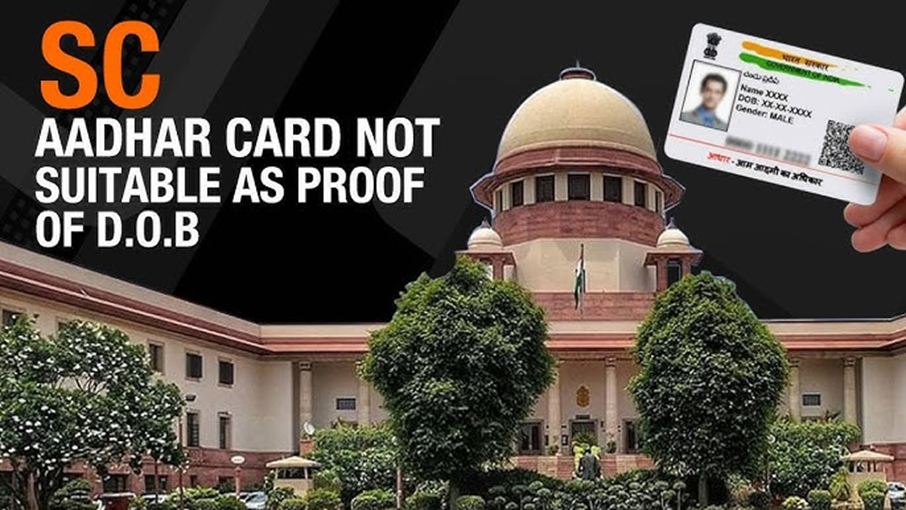Supreme Court Ruling on Aadhaar as Proof of Age
Why in the news?
The Supreme Court stated that Aadhaar is not valid proof of age, emphasising the use of official documents like School Leaving Certificates for age verification in legal matters.
Background of the Case:
- The Supreme Court ruled that Aadhaar cannot be used as proof of age when valid documents, like a School Leaving Certificate, are available.
- The decision arose from a case involving compensation claims for a motorcycle accident victim who died in
- The Motor Accident Claims Tribunal initially awarded ₹19,35,400 based on the victim’s age as stated in his Aadhaar (47 years old).
- The victim’s family argued that his age was 45 according to his School Leaving Certificate, seeking a recalculated compensation multiplier based on that age.
Court’s Reasoning:
- The Supreme Court highlighted that the Punjab & Haryana High Court should have only reviewed whether the tribunal’s order was legally valid.
- It emphasised that Aadhaar’s purpose is to establish identity, not age.
- Citing the Juvenile Justice Act, the court noted that recognized documents like matriculation certificates should determine age.
- In its previous 2018 ruling, the Supreme Court affirmed that Aadhaar serves as proof of identity, not as proof of date of birth.
Outcome and Implications:
- The Supreme Court recalculated the compensation based on the victim’s age from the School Leaving Certificate, adjusting the multiplier from 13 to 14.
- Consequently, the family was awarded ₹15 lakh.
- This ruling reinforces the distinction between identity and age verification, reiterating that Aadhaar should not substitute for official age-related documentation in legal matters.
- The Aadhaar Act, passed in 2015, continues to be upheld for identity verification in government schemes but not for age verification.
About Aadhaar:
- Definition: Aadhaar is a 12-digit identification number issued by UIDAI for the Government of India.
- Purpose: Serves as proof of identity and address throughout India.
- Biometric Document: Stores personal information in a government database.
- Eligibility: Issued to residents in India for over six months with valid ID and address proof.
- Foreign Nationals: Eligible if residing in India for at least six months.
- Benefits: Facilitates access to banking, mobile services, and various government and non-government services.
Sources Referred:
PIB, The Hindu, Indian Express, Hindustan Times




